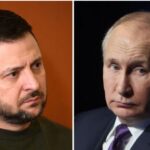Diplomats signal progress in Muscat as key issues remain unresolved
MUSCAT, OMAN — Iran and the United States concluded their fourth round of negotiations on Tehran’s nuclear program on Sunday, with both sides signaling cautious optimism after what officials called “difficult but useful” discussions.
The three-hour session was held behind closed doors at the Omani foreign ministry headquarters and was facilitated by Omani Foreign Minister Sayyid Badr al-Busaidi, who has played a key role in regional diplomacy. The talks come amid heightened geopolitical tensions and renewed international calls for non-proliferation and regional stability.
According to Iranian and American officials, negotiators made incremental progress, though major sticking points such as uranium enrichment levels, U.S. sanctions relief, and international inspections—remain unresolved.
Iranian Foreign Minister Abbas Araqchi and U.S. Middle East envoy Steve Witkoff led the discussions, continuing a fragile diplomatic track that has gained momentum despite public posturing from both capitals. A senior Iranian diplomat, speaking anonymously, called the talks “tense but not unproductive.”
Observers note that this latest round comes at a sensitive time, just ahead of U.S. President Donald Trump’s anticipated visit to the Middle East, where nuclear issues are expected to dominate bilateral talks with key regional allies.
No joint statement was issued after the meeting, but officials on both sides have hinted that a fifth round of talks is being considered, likely within the coming weeks.



